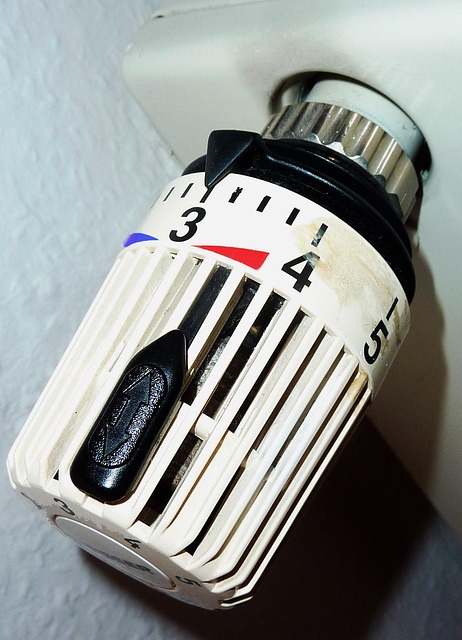Understanding Inpatient Alcohol Detox Programs for Effective Recovery
Alcohol detoxification is a critical first step in the recovery journey for individuals struggling with alcohol use disorder. Inpatient alcohol detox programs provide structured, supervised environments where individuals can safely withdraw from alcohol while receiving continuous medical care. These programs are designed to manage the potentially dangerous symptoms of alcohol withdrawal, which can range from mild anxiety and shakiness to severe complications like seizures or delirium tremens. Understanding the components and benefits of inpatient detox can help individuals and their loved ones make informed decisions about treatment options for alcohol dependency.

How Inpatient Detox Differs from Outpatient Programs
Inpatient alcohol detox programs provide 24/7 care in a residential setting, while outpatient programs allow patients to live at home while attending scheduled treatment sessions. This fundamental difference creates several distinctions in how care is delivered. Inpatient programs offer constant supervision by medical professionals who can immediately respond to withdrawal symptoms or complications. Patients receive around-the-clock monitoring of vital signs, medication management, and immediate intervention if emergency situations arise.
Outpatient detox, while more flexible and less disruptive to daily life, typically provides intermittent care with scheduled check-ins. This approach may be suitable for individuals with mild to moderate alcohol dependency and strong support systems at home. However, those with severe alcohol use disorder, a history of complicated withdrawals, or co-occurring medical or psychiatric conditions generally benefit from the comprehensive care environment of inpatient settings.
Another key difference lies in the intensity of services. Inpatient programs frequently include comprehensive psychological support alongside medical detoxification, offering individual therapy, group counseling, and educational sessions about addiction and recovery. This immersive therapeutic environment creates a foundation for continued treatment after the detoxification phase is complete.
Medical Supervision and Safety Measures in Inpatient Detox
Medical supervision forms the cornerstone of effective inpatient alcohol detox programs. Trained healthcare professionals conduct thorough assessments upon admission to determine the severity of alcohol dependence and any co-occurring conditions. This information guides the development of personalized detoxification protocols tailored to each patient’s needs. Regular monitoring includes checking vital signs, assessing withdrawal symptoms using standardized scales, and adjusting medications accordingly.
The medical team typically uses evidence-based medications to manage withdrawal symptoms and reduce discomfort. Benzodiazepines are commonly prescribed to prevent seizures and reduce anxiety, while other medications may address specific symptoms like nausea or insomnia. Nutritional supplementation, particularly B vitamins including thiamine, helps address deficiencies common among individuals with alcohol use disorder and prevents complications like Wernicke-Korsakoff syndrome.
Safety measures extend beyond medical monitoring to include environmental considerations. Inpatient facilities maintain alcohol-free environments with controlled access, minimizing exposure to triggers and eliminating the possibility of continued drinking during detoxification. Many programs implement fall prevention strategies, especially during the first 72 hours when coordination may be impaired, and ensure that emergency medical equipment and trained staff are immediately available in case of severe complications.
Benefits of Choosing Inpatient Detox for Recovery
Inpatient alcohol detox offers numerous advantages that contribute to successful early recovery. The structured environment eliminates access to alcohol and minimizes exposure to triggers, making it easier for individuals to focus entirely on their recovery without daily distractions or temptations. This focused approach allows patients to develop coping skills and strategies in a supportive setting before facing real-world challenges.
The comprehensive support available in inpatient settings addresses not only the physical aspects of withdrawal but also the psychological components of addiction. Most programs offer individual and group therapy sessions that help patients understand their relationship with alcohol, identify triggers, and develop healthier coping mechanisms. This integrated treatment approach addresses the root causes of addiction rather than merely managing withdrawal symptoms.
Inpatient detox also provides a valuable opportunity for patients to connect with others undergoing similar experiences. This peer support creates a sense of community and understanding that many find essential to their recovery process. Additionally, the continuous presence of healthcare professionals offers reassurance to both patients and their families that withdrawal is being managed safely and effectively, reducing anxiety during an already challenging time.
Another significant benefit is the seamless transition to ongoing treatment. Most inpatient detox programs work as part of a continuum of care, helping patients develop aftercare plans that may include residential treatment, intensive outpatient programs, outpatient therapy, or supportive recovery communities. This continuity helps maintain momentum in recovery and reduces the risk of relapse following the detox phase.
Selecting an Inpatient Alcohol Detox Program
When considering inpatient alcohol detox options, several factors can guide the selection process. Accreditation and licensing verify that a facility meets established standards of care and employs qualified staff. The qualifications of the medical team, particularly whether they specialize in addiction medicine, can significantly impact the quality of care provided during detoxification.
The treatment philosophy and available therapies should align with the individual’s preferences and needs. Some programs emphasize medication-assisted treatment, while others focus more heavily on holistic approaches or specific therapeutic modalities. The facility’s approach to aftercare planning is equally important, as continued support after detox substantially improves long-term recovery outcomes.
Practical considerations like insurance coverage, location, and program duration also play important roles in the decision-making process. Most inpatient detox programs last between 3-10 days, depending on the severity of withdrawal symptoms and individual response to treatment, though some patients may require longer stays if complications arise or if transitioning directly to residential treatment.
This article is for informational purposes only and should not be considered medical advice. Please consult a qualified healthcare professional for personalized guidance and treatment.




